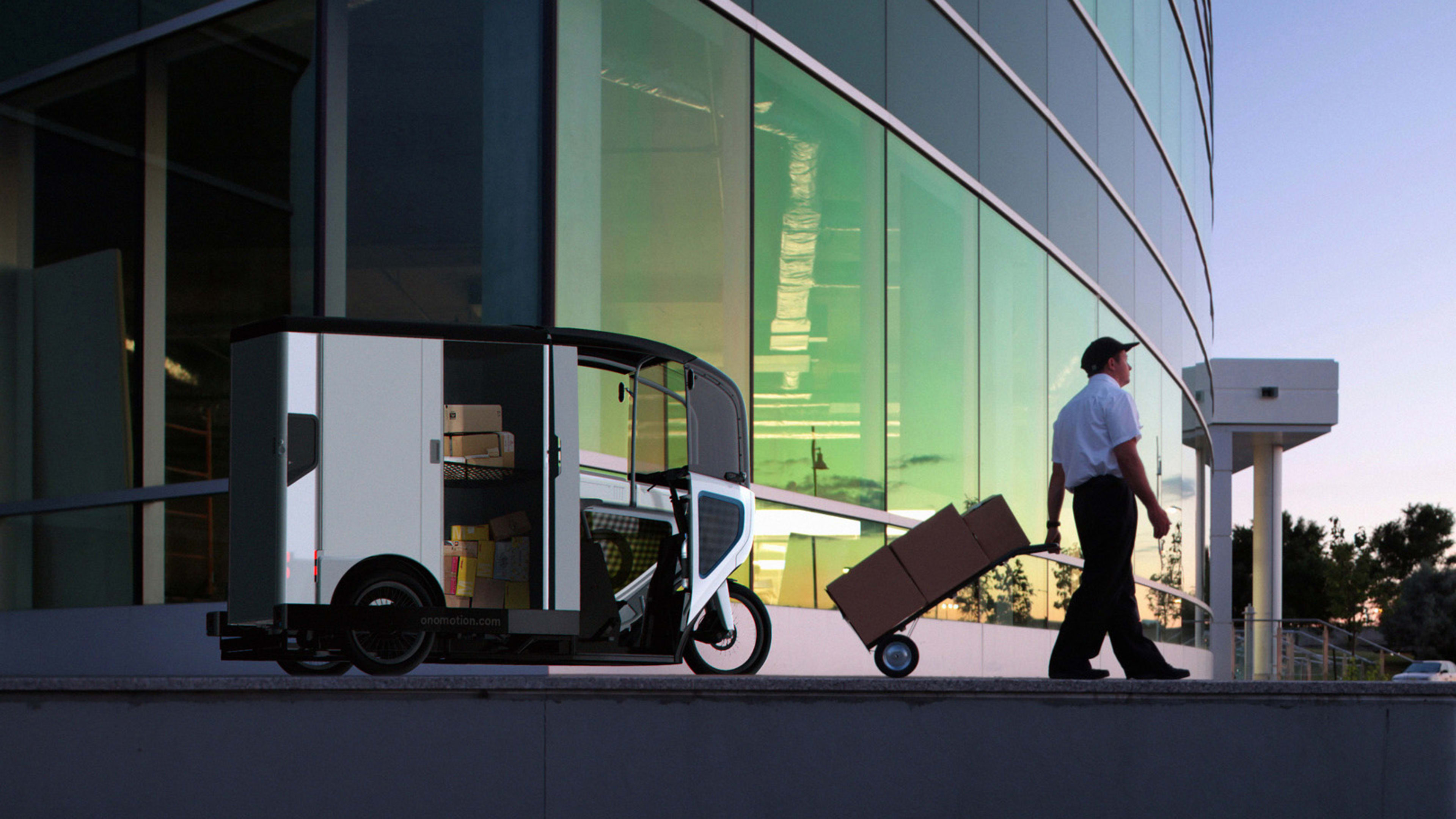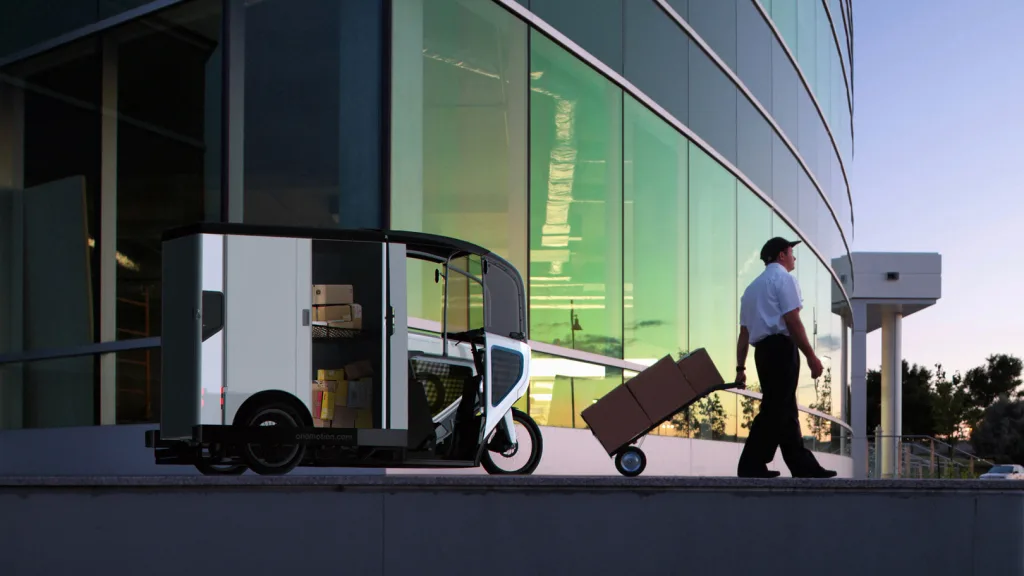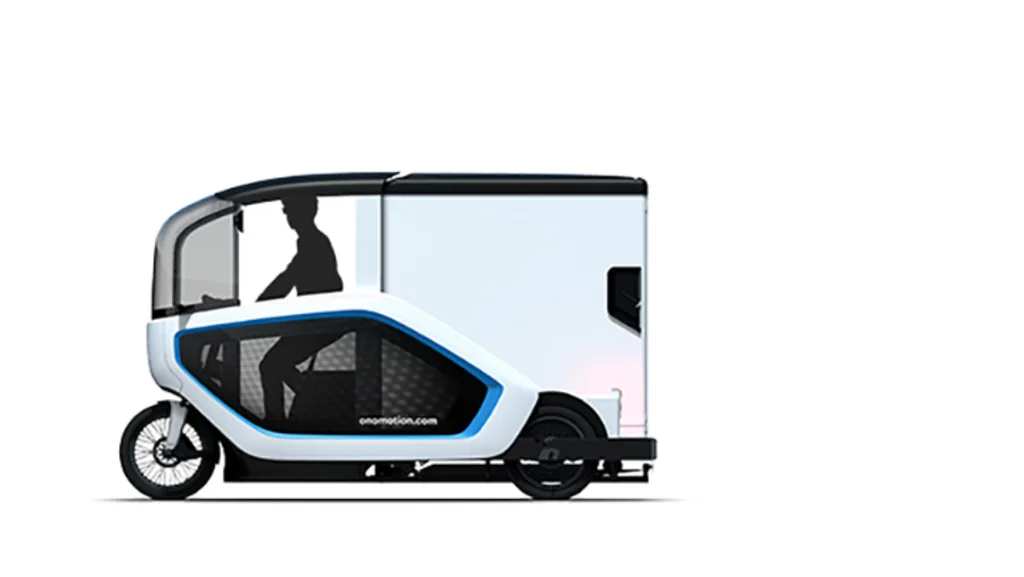From the side, a new delivery vehicle from a German startup called Ono looks like a tiny truck. But it’s actually an electric bike, narrow enough to easily move through traffic and even fit in a bike lane when necessary.
As a growing number of delivery companies move toward electric vehicles—such as Amazon, which has 100,000 custom electric delivery vans on order from Rivian along with another 1,800 electric vans from Mercedes-Benz—Ono argues that size also matters as online shopping grows at a time when roads are already crowded. “The physical footprint of an Ono is only a quarter of the size compared to an electric truck,” says CEO Beres Seelbach. “So it causes no more traffic jams and is much easier and more flexible to operate.” It’s also cheaper to maintain. And like other electric vehicles, it also eliminates emissions and air pollution.
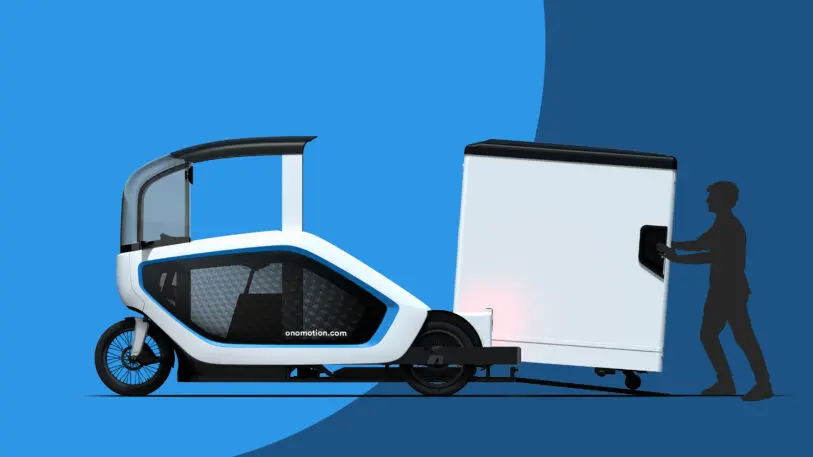
“Ono could work as a stand-alone delivery solution in a dense sector and within a radius,” says Seelbach. “But it is exponentially more interesting for operators when combined with so-called city hubs, and in this case, Ono vehicles replace traditional delivery trucks.” The cargo units are delivered to the city hubs by truck at off-peak hours, and then the bikes can handle the final deliveries. (In the future, trains, trams, or boats may handle the first step of delivery rather than trucks.)
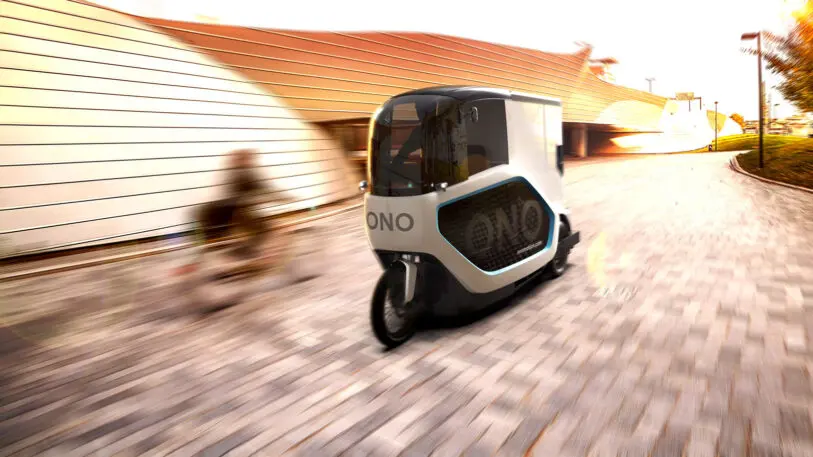
The company ran several short pilots, testing the optimum number of vehicles and hubs to serve different neighborhoods, and is launching in four German cities this fall. In Berlin, for example, there will soon be five hubs in operation for the service, with more being planned. EIT InnoEnergy, a company that supports innovation in sustainable energy, is investing more than 3 million euros over the next two years to help it expand. By 2025, the startup aims to have 14,000 vehicles operating in more than 60 cities. Eventually, Seelbach says, it’s feasible that e-bikes could replace trucks for last-mile delivery, as regulations and miniature containers are standardized and the number of city hubs grows.
Recognize your brand’s excellence by applying to this year’s Brands That Matter Awards before the early-rate deadline, May 3.
